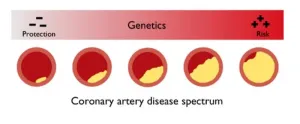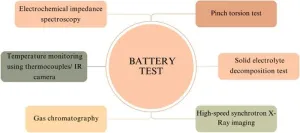(Press-News.org) SAN DIEGO – June 11, 2024 – Systematic reviews* of medical literature between 2020 to 2024 show bariatric surgery, also known as metabolic or weight-loss surgery, produces the greatest and most sustained weight loss compared to GLP-1 receptor agonists and lifestyle interventions. The study was presented today at the American Society for Metabolic and Bariatric Surgery (ASMBS) 2024 Annual Scientific Meeting.
Researchers found lifestyle interventions such as diet and exercise resulted in an average weight loss of 7.4% but that weight was generally regained within 4.1 years. GLP-1s and metabolic and bariatric surgery proved far superior. Studies included thousands of patients from clinical studies and several randomized clinical trials.
Five months of weekly injections of GLP-1 semaglutide resulted in 10.6% weight loss and nine months of tirzepatide produced 21.1% weight loss. However, once treatment stopped, about half the lost weight returned within a year despite which drug was used. If injections were continued, tirzepatide patients plateaued at 22.5% weight loss at 17-18 months. Patients on semaglutide plateaued at 14.9% during the same time period.
Metabolic and bariatric surgery procedures gastric bypass and sleeve gastrectomy demonstrated total weight loss of 31.9% and 29.5% one year after surgery, respectively. Weight loss of approximately 25% was maintained for up to 10 years after surgery.
“Metabolic and bariatric surgery remains the most effective and durable treatment for severe obesity. Unfortunately, it also remains among the most underutilized,” said study co-author and bariatric surgeon Marina Kurian MD, NYU Langone Health. “Surgery needs to play a bigger role in obesity treatment and be considered earlier in the disease process. It is no longer a treatment of last resort and should not be withheld until more severe disease develops. There is no medical reason for this.”
The ASMBS reports that in 2022 nearly 280,000 metabolic and bariatric procedures were performed in the U.S., which represents only about 1% of those who meet eligibility requirements based on BMI. According to the U.S. Centers for Disease Control and Prevention (CDC), obesity effects 42.4% of Americans. Studies show the disease can weaken or impair the body’s immune system and cause chronic inflammation and increase the risk of many other diseases and conditions including cardiovascular disease, stroke, type 2 diabetes, and certain cancers.
“While the new drug treatments show great promise and will lead to more people being successfully treated, particularly if prices come down and insurance coverage improves, we are barely using the best tool we have to fight obesity -- metabolic and bariatric surgery, which is safer and more effective than ever before,” said Ann Rogers, MD, ASMBS President-elect and Professor of Surgery at Penn State College of Medicine, who was not involved in the study. “For many people, the risk of death from obesity, diabetes, and heart disease exceeds the risks of surgery.”
Study Methodology
The study included a systematic review of studies that examined weight loss through lifestyle modification, GLP-1s (Semaglutide or tirzepatide) or metabolic and bariatric surgery. GLP-1 data included four randomized clinical trials conducted between 2021 and 2024 while conclusions on lifestyle modifications were based on a systematic review of eight studies. Metabolic and bariatric surgery (gastric bypass and sleeve gastrectomy) were subject to a review of 35 studies, including two randomized clinical trials. In all, researchers reviewed the weight-loss results of approximately 20,000 patients.
About Weight-Loss Surgery
Metabolic, bariatric, or weight-loss surgery such as gastric bypass and sleeve gastrectomy has been shown to be the most effective and long-lasting treatment for severe obesity. The operations improve or resolve diseases including type 2 diabetes, heart disease and high blood pressure and leads to significant and durable weight loss. Its safety profile is comparable to some of the safest and most commonly performed surgeries in the U.S. including gallbladder surgery, appendectomy and knee replacement.
About ASMBS
The ASMBS is the largest organization for bariatric surgeons in the United States. It is a non-profit organization that works to advance the art and science of bariatric surgery and is committed to educating medical professionals and the lay public about bariatric surgery as an option for the treatment of severe obesity, as well as the associated risks and benefits. It encourages its members to investigate and discover new advances in bariatric surgery, while maintaining a steady exchange of experiences and ideas that may lead to improved surgical outcomes for patients with severe obesity. For more information, visit www.asmbs.org.
*A322- EFFECTIVENESS AND DURABILITY OF COMMON WEIGHT LOSS METHODS
Megan Jenkins New York NY1, Juliane Hafermann Koenigswinter 2, Christine Fielding 1, Gerhard Prager Vienna 3, Marina Kurian New York NY1 NYU Langone Health1 Coreva Scientific2 IFSO3
END
Bariatric surgery more effective and durable than new obesity drugs and lifestyle intervention
Systematic reviews of scientific data shows big differences in weight-loss outcomes between methods
2024-06-11
ELSE PRESS RELEASES FROM THIS DATE:
For Republican men, environmental support hinges on partisan identity
2024-06-11
PULLMAN, Wash. – Who proposes a bill matters more to Republican men than what it says—at least when it comes to the environment, a recent study found.
In an experiment with 800 adults, researchers used an article describing a hypothetical U.S. Senate bill about funding state programs to reduce water pollution to test partisan preferences, changing only the political affiliation of the proposal’s sponsors. Democrats in the study who favored the proposal supported the legislation no matter who proposed it and at higher levels than the Republican participants. Republicans’ support varied, however, dropping about 18% when it was described as being ...
Research signals major milestone in cutting harmful gases that deplete ozone and worsen global warming
2024-06-11
A new study has revealed significant progress in the drive to reduce levels in the atmosphere of chemicals that destroy Earth’s ozone layer, confirming the success of historic regulations limiting their production.
The findings, led by the University of Bristol and published today in Nature Climate Change, show for the first time a notable decline in the atmospheric levels of potent ozone-depleting substances (ODS), called hydrochlorofluorocarbons (HCFCs). These HCFCs are also harmful greenhouse gases, so a reduction should also lessen global warming.
The Montreal Protocol was agreed to internationally in 1987 to introduce controls on the production and usage of ODS, which were once ...
New AI tool finds rare variants linked to heart disease in 17 genes
2024-06-11
New York, NY [June 11, 2024]—Using an advanced artificial intelligence tool, researchers at the Icahn School of Medicine at Mount Sinai have identified rare coding variants in 17 genes that shed light on the molecular basis of coronary artery disease (CAD), the leading cause of morbidity and mortality worldwide.
The discoveries, detailed in the June 11 online issue of Nature Genetics [DOI: 10.1038/s41588-024-01791-x], reveal genetic factors impacting heart disease that open new avenues for targeted treatments and personalized approaches to cardiovascular care.
The investigators used an in silico, or computer-derived, score for coronary artery disease (ISCAD) ...
New discovery reveals unexpected ocean algae help cool the Earth
2024-06-11
Peer-reviewed – observational study - cells
A common type of ocean algae plays a significant role in producing a massively abundant compound that helps cool the Earth’s climate, new research has discovered.
The findings of the study by the University of East Anglia (UEA) and Ocean University of China (OUC) could change our understanding of how these tiny marine organisms impact our planet.
The team identified the bloom-forming Pelagophyceae algae as potentially abundant and important producers ...
New computer vision method helps speed up screening of electronic materials
2024-06-11
Boosting the performance of solar cells, transistors, LEDs, and batteries will require better electronic materials, made from novel compositions that have yet to be discovered.
To speed up the search for advanced functional materials, scientists are using AI tools to identify promising materials from hundreds of millions of chemical formulations. In tandem, engineers are building machines that can print hundreds of material samples at a time based on chemical compositions tagged by AI search algorithms.
But to date, there’s been no similarly speedy way to confirm that these printed materials actually perform as expected. ...
Nearly 1 in 4 people with a history of bipolar disorder achieve complete mental health
2024-06-11
Toronto, ON —New research conducted by the University of Toronto and published in the Journal of Affective Disorders Reports highlights that among Canadians previously diagnosed with bipolar disorder, 43% were free of all bipolar symptoms and approximately 1 in 4 (23.5%) had achieved complete mental health.
Despite these encouraging findings, those with a history of bipolar disorder were much less likely to be flourishing than their peers. Three-quarters of those without a history of bipolar disorders were in complete mental health.
“Even after accounting for various sociodemographic and health factors, individuals with ...
Switching nanomagnets using infrared lasers
2024-06-11
When molecules are irradiated with infrared light, they begin to vibrate due to the energy supply. For Andreas Hauser from the Institute of Experimental Physics at Graz University of Technology (TU Graz), this well-known phenomenon was the starting point for considering whether these oscillations could also be used to generate magnetic fields. This is because atomic nuclei are positively charged, and when a charged particle moves, a magnetic field is created. Using the example of metal phthalocyanines – ring-shaped, planar dye molecules – Andreas Hauser and his team have now calculated ...
How older people explore new spaces could suggest cognitive decline and dementia
2024-06-11
Spatial navigation – the ability to select and follow a route from one place to another – is a skill we use every day. Depending on practice, general cognitive ability, and childhood environment, some people are naturally better at this than others. But research has also shown that people’s skill in spatial navigation tends to decrease with increasing age.
This decline in navigation skill has been generally attributed to worsening spatial memory, due to changes in brain structure and function that naturally occur with age. But what if it isn’t just due to our spatial memory declining, but also to changes in how we explore a novel ...
How should Japan make use of vacant homes in old new towns?
2024-06-11
During Japan’s 1960-90 population boom, new towns sprouted up across the nation. These new towns were quiet residential neighborhoods of suburban areas, many of which are now shrinking in terms of inhabitants. They have become old new towns, aging neighborhoods amid Japan’s population decline, frequently dotted with vacant homes.
Dr. Haruka Kato, a junior associate professor at the Graduate School of Human Life and Ecology at Osaka Metropolitan University, examined the nonlinear relationship between population decline and the urban transformation of residences to other land-use plots in old new towns. His research group wanted ...
Sustainable battery technology: innovations in design, manufacturing, and fault detection
2024-06-11
In an era where sustainable energy is paramount, a groundbreaking study provides critical insights into battery health management. It meticulously examines the design, optimization, fault detection, and recycling of Lithium-ion, Lead Acid, and Nickel Metal Hydride (NiMH) batteries—crucial components for the next generation of portable devices, electric vehicles, and renewable energy systems.
As our reliance on electric vehicles and renewable energy systems grows, so does the demand for efficient and sustainable ...
LAST 30 PRESS RELEASES:
Scientists deliver new molecule for getting DNA into cells
Study reveals insights about brain regions linked to OCD, informing potential treatments
Does ocean saltiness influence El Niño?
2026 Young Investigators: ONR celebrates new talent tackling warfighter challenges
Genetics help explain who gets the ‘telltale tingle’ from music, art and literature
Many Americans misunderstand medical aid in dying laws
Researchers publish landmark infectious disease study in ‘Science’
New NSF award supports innovative role-playing game approach to strengthening research security in academia
Kumar named to ACMA Emerging Leaders Program for 2026
AI language models could transform aquatic environmental risk assessment
New isotope tools reveal hidden pathways reshaping the global nitrogen cycle
Study reveals how antibiotic structure controls removal from water using biochar
Why chronic pain lasts longer in women: Immune cells offer clues
Toxic exposure creates epigenetic disease risk over 20 generations
More time spent on social media linked to steroid use intentions among boys and men
New study suggests a “kick it while it’s down” approach to cancer treatment could improve cure rates
Milken Institute, Ann Theodore Foundation launch new grant to support clinical trial for potential sarcoidosis treatment
New strategies boost effectiveness of CAR-NK therapy against cancer
Study: Adolescent cannabis use linked to doubling risk of psychotic and bipolar disorders
Invisible harms: drug-related deaths spike after hurricanes and tropical storms
Adolescent cannabis use and risk of psychotic, bipolar, depressive, and anxiety disorders
Anxiety, depression, and care barriers in adults with intellectual and developmental disabilities
Study: Anxiety, gloom often accompany intellectual deficits
Massage Therapy Foundation awards $300,000 research grant to the University of Denver
Gastrointestinal toxicity linked to targeted cancer therapies in the United States
Countdown to the Bial Award in Biomedicine 2025
Blood marker from dementia research could help track aging across the animal world
Birds change altitude to survive epic journeys across deserts and seas
Here's why you need a backup for the map on your phone
ACS Central Science | Researchers from Insilico Medicine and Lilly publish foundational vision for fully autonomous “Prompt-to-Drug” pharmaceutical R&D
[Press-News.org] Bariatric surgery more effective and durable than new obesity drugs and lifestyle interventionSystematic reviews of scientific data shows big differences in weight-loss outcomes between methods



